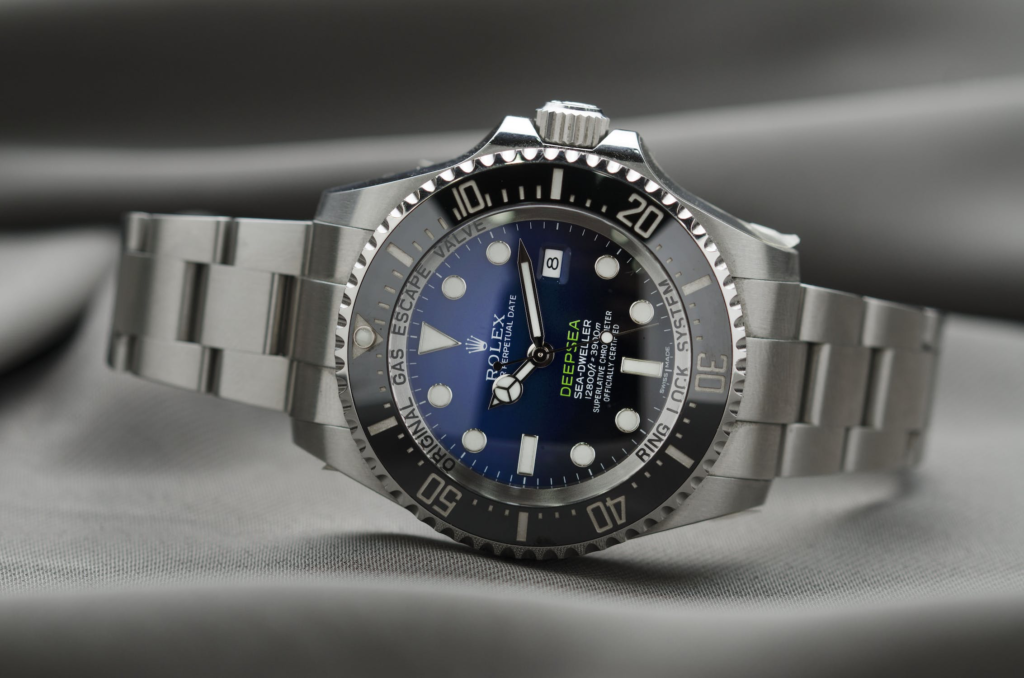Investing in watches is a topic that sparks both curiosity and debate among collectors and investors alike. Some argue that watches can be a lucrative investment, while others are more skeptical. If you’re considering diving into the world of watch investment, it’s important to understand the pros and cons, the factors that determine a watch’s value, and some tips to help you make informed decisions. In this article, we’ll explore the potential benefits and drawbacks of investing in watches, delve into the key factors that affect a watch’s value, and provide you with a list of luxury watches worth considering.
The Pros and Cons of Investing in Watches
Before delving into watch investment, it’s essential to understand both the advantages and disadvantages. Let’s explore the pros and cons of investing in watches.
The Advantages of Investing in Watches
1. Tangible Portable Asset
One of the primary advantages of investing in watches is that they are tangible assets that you can physically possess. Unlike stocks or digital assets, a luxury watch can be carried with you wherever you go or stored in a safe place. This tangibility can provide a sense of security and satisfaction for investors.
2. Potential for Profit
The potential for profit is another enticing aspect of watch investment. Certain watches, particularly those from renowned brands and limited editions, have a track record of appreciating in value over time. Unlike other assets, such as luxury cars, which often depreciate, the best investment watches can potentially yield significant returns. According to experts, luxury watches priced over $100,000 have shown an average value appreciation of approximately 69% every decade.
3. Stability During Economic Downturns
Watches have historically shown resilience during economic crises. Unlike stocks that can experience significant volatility during market downturns, luxury watches tend to be more stable. During the COVID-19 pandemic, for example, the value of luxury watches dropped by only 8% compared to a 19% decline in the S&P 500 stock index. This stability makes watches an attractive investment option for those seeking to diversify their portfolios.
The Disadvantages of Investing in Watches
1. Lack of Liquidity and Unexpected Costs
One of the main challenges of investing in watches is the lack of liquidity. Unlike stocks or other assets that can be easily bought or sold on exchanges, trading lesser-known watches on the secondary market can be challenging. Selling a watch at the best possible price may require waiting for months or even years, and engaging a broker to sell on your behalf may incur significant transaction fees.
2. Counterfeit Watches
The proliferation of counterfeit watches in the market poses a significant risk for investors. Counterfeit watches can be difficult to distinguish from genuine ones, making thorough research and due diligence essential before making any investment. Identifying reputable dealers and familiarizing yourself with the intricacies of genuine watches can help mitigate this risk.
Factors That Determine the Value of a Watch
Several factors contribute to a watch’s value. Understanding these factors is crucial when evaluating potential investment opportunities. Let’s explore the key elements that determine the value of a watch.
1. Brand Reputation
The reputation of the watch brand is a significant determinant of a watch’s value. Established brands with a long-standing history of craftsmanship, innovation, and iconic designs often command higher prices in the market. Brands like Rolex, Patek Philippe, Audemars Piguet, and Omega are known for their quality and have a track record of maintaining or appreciating in value over time.
2. Rarity and Scarcity
The rarity and scarcity of a watch can greatly influence its value. Limited-edition watches or those with unique features and materials are often highly sought after by collectors. When demand outweighs supply, prices tend to rise. Watches with limited production runs or those associated with special events or collaborations are particularly desirable in the market.
3. Condition and Authenticity
The condition of a watch plays a crucial role in determining its value. A well-preserved watch in excellent working order will generally command a higher price than one in poor condition. It’s essential to ensure the authenticity of a watch before making a purchase, as counterfeit watches can significantly impact value. Thoroughly researching the market, consulting reputable dealers, and verifying the watch’s authenticity through expert opinions or certifications can help mitigate this risk.
4. Material and Craftsmanship
The materials used in the construction of a watch can greatly influence its value. Luxury watches often feature high-quality materials such as precious metals, sapphire crystals, and premium leather straps. Watches that showcase exceptional craftsmanship, intricate complications, or innovative technologies are also highly valued by collectors.
5. Historical Significance
Historical significance can add value to a watch. Watches associated with significant events or owned by notable individuals can become highly sought after by collectors. For example, a watch worn by a famous actor or a watch used in a historic sporting event can command a premium in the market.
6. Market Trends and Demand
Market trends and demand play a crucial role in determining a watch’s value. The popularity of specific brands, models, or styles can fluctuate over time, affecting their market value. Keeping abreast of current trends and understanding the preferences of collectors can help identify potential investment opportunities.
Tips for Investing in Watches
Investing in watches requires careful consideration and research. Here are some tips to help you navigate the world of watch investment:
1. Research the Watch Market
Before investing in a watch, it’s crucial to conduct thorough research on the watch market. Familiarize yourself with current trends, historical pricing data, and the reputations of different brands and models. Study auction results, consult industry experts, and explore reputable online platforms for insights into the market.
2. Set a Budget and Investment Goals
Establishing a budget and investment goals is essential before entering the watch investment market. Determine the amount you’re willing to invest and the specific objectives you want to achieve. Consider factors such as your risk tolerance, investment horizon, and desired returns. Setting clear goals will guide your investment decisions and help you stay focused.
3. Choose Brands with a Strong Resale Value
Opting for brands with a strong resale value is generally a prudent strategy for watch investment. Brands like Rolex, Patek Philippe, Audemars Piguet, and Omega have proven track records of holding or appreciating in value over time. However, it’s important to note that not all watches from these brands will appreciate equally, and thorough research is necessary to identify specific models or editions with high resale potential.
4. Select the Right Buying and Selling Channels
Deciding where to buy and sell investment watches is crucial for achieving optimal returns. Authorized dealers, reputable online marketplaces, and auction houses are popular options for purchasing watches. Each channel has its advantages and considerations, such as pricing, authenticity verification, and transaction fees. Carefully evaluate the pros and cons of each channel and choose the one that aligns with your investment goals.
5. Properly Store and Maintain Your Watches
To preserve the value of your investment watches, proper storage and maintenance are essential. Store your watches in a cool, dry place, away from direct sunlight and extreme temperature fluctuations. Consider using a watch box, watch roll, or dedicated watch winder for automatic watches. Regular servicing and maintenance by authorized professionals can help prevent potential damage and ensure the longevity of your timepieces.
Conclusion
Investing in watches can offer both financial and personal satisfaction. The potential for profit, tangibility, and stability during economic downturns make watches an attractive investment option. However, it’s crucial to consider the lack of liquidity, the risk of counterfeits, and the many factors that determine a watch’s value. By conducting thorough research, setting clear investment goals, and choosing the right watches and buying channels, you can make informed decisions and potentially reap the rewards of watch investment. Remember, investing in watches should be approached with careful consideration and a long-term perspective to maximize your chances of success.


